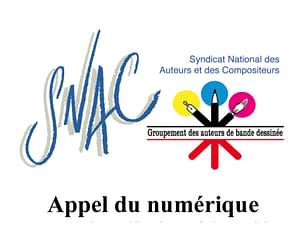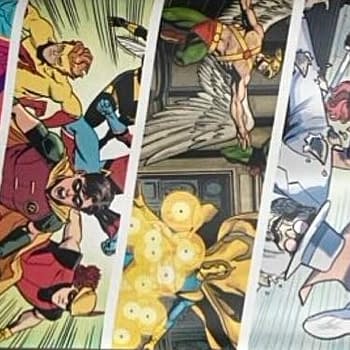Posted in: Recent Updates | Tagged:
Will French Creators Go On Strike Over Digital Rights?

The question was asked, could the creators for the largest concentration of comic book work in the Western world go on strike?
Spokesman for the current resistance movement The Call, Emmanuel De Rengerve replied (translation by Christophe Coel);
Taking into account the situation and the impossibility for the authors and their representatives to negotiate with the editors and their representatives, the idea would be tempting but it does not seem to me realistic in light of the French situation.
The Call simply proposes a signature "strike" (in terms of unconditionally allowing all digital rights) for all contracts which do not answer the elementary preoccupation of transparency and balanced rights and duties of the authors and editors. Snac (like other organizations of authors in France) greeted and supported the strike movement of the guilds of writers in the United States. To be frank we even completely admired this movement and its effectiveness to lead to the recognition of supplementary rights for writers on the exploitation of their work in the new media. But in France, such a movement would not be possible.
From memory, it seems to me that the American writers had to strike during several months to obtain results. To consider such a movement over such a duration, the organizations which launch it must be assured to be completely followed by the professionals of the sector concerned. In the USA, the guilds are quasi impossible to circumvent, almost obligatory, to exert certain trades in the industry of entertainment. When a movement is started, it is by organizations which represent almost everyone (small, large, stars or unknown, etc). When a strike call is launched, it is respected by the professionals. If a trade launches out in an action of this kind over there, the tendency is not immediately to criticise, but rather to seek to understand why the recourse to such an action. And solidarity within the trade, and indeed even cross corporations, allows the strikers to hold financially. For example, in the conflict of the writers in Hollywood, it seems to me that they received the support of artists organizations and also of the stars in Hollywood. In addition, television writer for a Hollywood show is a work full-time. A delay of delivery of texts for an episode in the course of productions or shooting can have strong financial consequences for the studios. These studios yielded only when the source dried up, they had nothing more to shoot and all the expenses of production of the series to be assumed. With, to top it all, the pressure of the broadcasters waiting for the new seasons of their hit shows.
In short, it's difficult to compare all that with the situation of European comics authors who generally do not have long-standing agreements with editors, and who if they were to not send their boards during a few weeks or even a few months, would not necessarily be able to create a situation where the publishers would get weaker. Add to this the fact that all the authors are not in a professional organization…
And yet the movement launched with the Call, despite the weaknesses of the authors in France, is incontestably important and is a success. The mobilization of the professionals around this document is there to show it. More than 800 signatories, journalists, specialized press and many more became aware of certain crucial questions. The debate is now largely open between editors and authors. Appointments are being planned with political officials. Other organizations of authors (youth and mainstream literature) are considering joining, in a form or another, this movement. In short, thanks to this Call, there is now a little hope that some of the questions which arose can find some answers.
So rather than comic creators putting down their ink pens, they simply won't pick up their biros to sign a contract that doesn't address the issue of digital rights – and more significantly in their favour. So rather than an instant cessasion of work you may see a longer, more drawn out, gradual drifting away of content – until this gets addressed.










